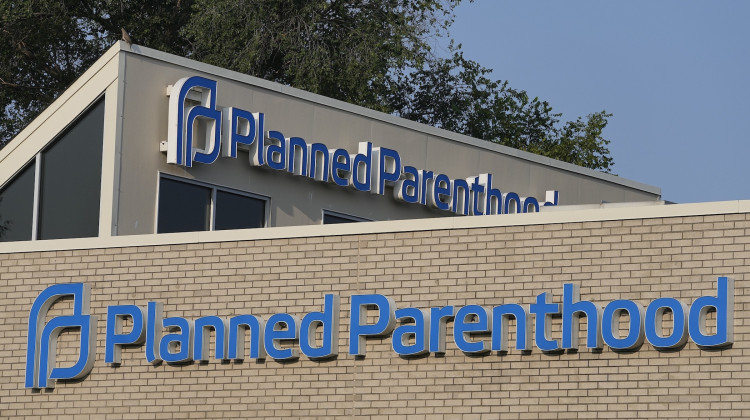INDIANAPOLIS – The success or failure of the Affordable Care Act or ACA, is hotly debated. In Indiana, more than half a million Hoosiers are now covered because of it, but a new federal report indicates that a small percentage of those people will see rising rates.
Most Hoosiers are not on the ACA or "Obamacare." Most have insurance through their employers. Much of what they know about the ACA they learned from headlines and election coverage, like the race for Indiana’s open Senate seat.
U.S. Rep. Todd Young says the law was pushed through without bipartisan support.
"That’s why we have a really flawed piece of legislation that’s causing premiums to sky rocket, copays to go up, deductibles are so high right now that people sometimes can’t use their insurance," said Young in a recent interview.
Premiums – the amount you pay for your insurance policy – are rising for most Hoosiers using the ACA, those who do not qualify for low-income assistance and are not covered by their employers. But the government says more people may be eligible for subsidies.
They find providers and plans on a special market, the Indiana health exchange.
Young says the ACA should be scraped and the market reworked to allow for more competition. His democratic opponent Evan Bayh voted for the ACA in 2009, and says it’s not time to give up on it.
"We need to fix the parts of the law that need to be fixed but Congressman Young wants to take us back to the days when insurance companies could charge women more just because they’re female," says Bayh.
In the debate for the open U.S. Senate seat, Bayh says Young would end one outcome of the ACA that is popular in Indiana.
"He wants to deny healthcare coverage for 350,000 of our fellow citizens," Bayh says.
This is the Healthy Indiana Plan, HIP 2.0. It covers low income Hoosiers and uses a consumer driven model where people pay into a health savings account. More than 350,000 Hoosiers have signed up for the coverage since it was approved in 2015. And a recent state evaluation gave it high marks.
The argument is higher costs to some verses more for others. And it lives off the campaign trail as well.
Justin Stevens is the state director for a conservative political advocacy group, Americans for Prosperity. He says individual Hoosiers who do not qualify for HIP 2.0 and cannot get insurance through their jobs are losing – the exchange isn’t working.
"It leads to a less free market when it comes to health care and it has driven up cost and I don’t know that anyone could argue against those statements," says Stevens.
Last month Indiana University Health was the latest provider to announce they were dropping out of the exchange. In 2017, there will be four providers, down from eight. Anthem, the largest provider expects to raise the cost 29 percent next year.
But some say it’s not all bad news. Director of Public Policy for Covering Kids and Families, Caitlyn Priest, says the ACA is helping.
"Hundreds of thousands of people are now covered that weren’t before," says Priest. "Yes, let’s absolutely tweak the program while not overlooking the real benefits that consumers are seeing."
Some of those benefits are the provisions that were written into the law, like no more denial for pre-existing conditions and young adults can stay on their parent’s plans until they are 26.
Nearly 170,000 Hoosiers who could not get employer-based insurance are now insured. And 83 percent of those people are receiving subsidies that offset the cost of insurance.
Priest says there will have to be a flexible fix to Obamacare but urges people to look at the bigger picture.
"Go beyond health access to actual improved health status on an individual level and a population level and that’s what this is all about," says Priest.
The next open enrollment period starts in Nov. 1 and runs through Jan. 31.
 DONATE
DONATE






 View More Articles
View More Articles


 Support WFYI. We can't do it without you.
Support WFYI. We can't do it without you.